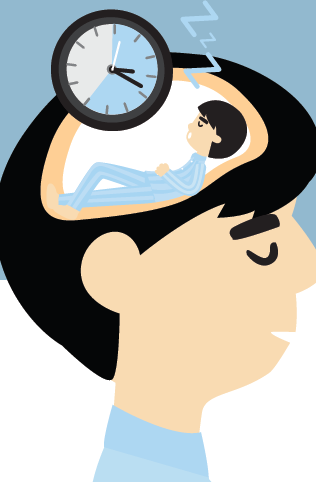Is Your Body Clock Ticking Correctly?
1. Sleep obviously plays an important role in our lives, and not getting enough sleep may cause a lot more problems than one can imagine. The most basic daily rhythm we depend on is the sleep-wake cycle, which is related to the cycle of the sun. It makes us feel sleepy in the evening and awake in the morning. Sleep-wake and other daily patterns are part of our circadian rhythms or circadian clock. This is an internal clock that tells your body when it’s time to go to sleep and when it’s time to wake up.
2. ....................................................................
The hormone melatonin plays a key role in managing sleep-wake cycles and the body’s biological clock. Melatonin, also known as the darkness hormone or the sleep hormone, is produced primarily in the brain. When your body produces a lot of melatonin, you feel sleepier and less alert. During the daytime, the amount of melatonin produced by your body is less. This allows you to stay active.
3. ....................................................................
However, according to the latest research, this internal clock controls much more than merely when we sleep or wake. Apparently, other systems such as hunger and heart rhythms also have a daily rhythm.
4. ....................................................................
Disrupting our body’s natural cycles can cause problems. Studies have found there are more frequent traffic accidents and workplace injuries when we lose an hour of sleep. There are also connections between a disrupted clock and chronic health issues, from diabetes to heart disease to mood problems. This is probably because the body is better at fighting infection while it is at rest.
5. ....................................................................
Our body clock can go out of sync for many different reasons. Sometimes we do things ourselves that make our normal rhythms go out of their routine, like flying to a distant time zone. Sometimes it’s other factors like genes that play a role.
6. ....................................................................
Keeping your schedule on track as much as possible is probably the best advice for your overall health. Avoid disruptions to your eat-sleep cycles. Practice a good sleep order, and stick to a sleep schedule that works well for your body to keep the system in its natural rhythm. Going to bed a little earlier, cutting back on caffeine late in the day, and saving that last bit of work for the morning rather than staying up late to finish it, can make a big difference in how your internal clock functions and in how you feel.

